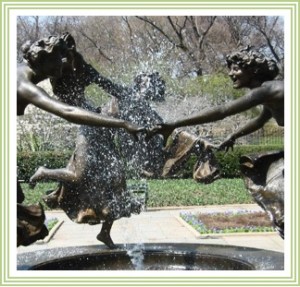
We live in a web of incessant name-calling. Not only between and among us, but more intractable – within our selves. In fact, ‘my self’ and ‘your self’ are positions in the current tangled field of name-calling in which we live and breathe every moment.
Every moment?
It certainly does seem that way. Listen to your inner dialogues!
We may not think about it this way, but concepts of identity and self are a kind power play. Names and identities are mutual positioning of one’s place. This mutual arranging is most often a reciprocal attempt to ‘keep things in place’ … while trying to maintain some leverage in defining the terms. We are intractably tied to each other and our game of names is the fastening.
In that sense, none of us are innocent. We play … and despite appearances to the contrary, we all play to win. After all, what kind of a loser would I be if I didn’t know who I am or who you are! Well, of course, I’d call myself a ‘loser’. And stimulate you to do the same. Even losing is a play to win – and define the terms.
So, what’s the prize? Connection with a guarantee.
Here’s the kicker: every guarantee undermines faith in the connection.
Connection is … but only to be discovered. It’s neither a prize to be earned or won nor a binding. It is a space of risk and invitation; a space out of which the source of all ideas of self and identity can be rearticulated.
We don’t ‘make connection’. We abide in connection. Connection occurs when allowance trumps will and risks peeking out from behind the blinds.
The window? Oh, right.
Allowing together our intuitions, our sensate bodies, our emotions and strangeness … and a certain amount of nonsense, before we find our names … again.
Moonlight floods the whole sky from horizon to horizon. How much it can fill your room depends on its windows.
Rumi
***
Although everybody
started his life
by inserting himself into the human world
through action and speech,
nobody
is the author or producer of his own life story …
Somebody began it
and is its subject in the twofold sense of the word,
namely, its actor and sufferer,
but nobody is its author.
The moment we want to say
who somebody is,
our very vocabulary leads us astray into saying
what he is;
we get entangled
in a description of qualities he necessarily shares
with others like him;
we begin to describe a type or a ‘character’
with the result that
our specific uniqueness
escapes us.
After Hannah Arendt
The Human Condition
© 2018 James Donnelly, DSW.LCSW
All rights reserved
South Garden Press, New York
For thoughts and comments, please e mail to: jdonnellydsw@gmail.com